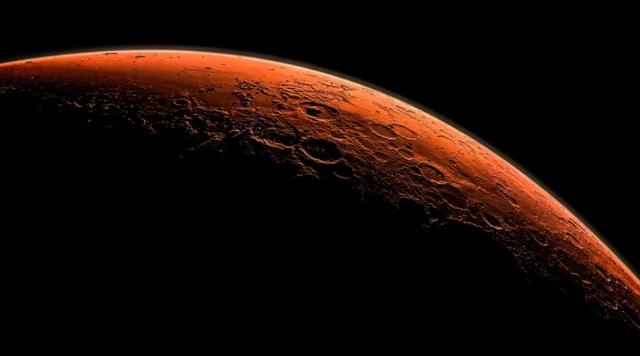Mars is part of our Manifest Destiny
As a glorious Golden Age of America dawns, Pax Americana can extend to space. Indeed, President Trump’s speeches beseech that we will “pursue our manifest destiny into the stars.”
That’s astronomically far, considering that it would take a trip comprised of many generations to reach Proxima Centauri, our closest star after the Sun. But pursuing our manifest destiny into the solar system -- next stop Mars -- is feasible, especially since “impossible is what we do best.” It will cost a lot, but depriving our full destiny may cost even more in the long run because other nations are seeking to extend their spheres of influence into space.
In fact, the Chinese are becoming very uppity (literally) as they attempt to slip the surly bonds of Earth. They have a Mars mission planned in 2028, indeed. Sure, Mars is known as the Red planet, but that doesn’t mean it should host a bunch of red communists. They should try to run their own country properly first, including treating all their peoples with human dignity.
Imagine there were once little green Martians scurrying around while that planet harbored a warm atmosphere, capable of supporting life eons ago. Presuming they achieved minimal consciousness, who do you think they’d prefer to colonize them epochs hence: Enlightened Americans who support individual liberties or corrupt Chinese tyrants who demand obedience to the totalitarian state?
Of course, the former, which, though a hypothetical thought experiment, still compels that Mars be part of our Manifest Destiny.
First, we have to get there, and I wouldn’t bet against SpaceX, which has an objective to colonize Mars. Furthermore, President Trump is keen on America leading explorations of our solar system; indeed, he signed into law the creation of the Space Force, as a stand-alone, sixth branch of the U.S. military.
Once we’re there, we can apply the same indomitable imagination, ingenuity, and industry that propelled America’s terrestrial Manifest Destiny. There are many local construction materials available, including Martian basalt, red regolith for bricks and binding agents, volcanic ash, and ice. All can be harnessed to build a Martian outpost “the likes of which we’ve never seen,” to invoke a popular Trump phrase.
We went to the moon not because it was easy, but because it was hard. Mars may be even harder in some ways, but we have much better technology now. We cannot idly allow the Chinese to contaminate or defile the magnificent Martian desolation the way they petulantly left behind patriotic graffiti on the moon’s far side.
Trump is renaming our landmarks (Mount McKinley, for example) to reflect our history. Maybe we should rename Mars as we Americanize it. The Romans named Mars after their god of war, but we come in peace -- Pax X? That’s about as clever as I can get, though I’m sure there’s something more catchy and reflective of American exceptionalism and wonderment.
America is not only the last great hope of Earth, but the next great hope of Mars.

Image: NASA





